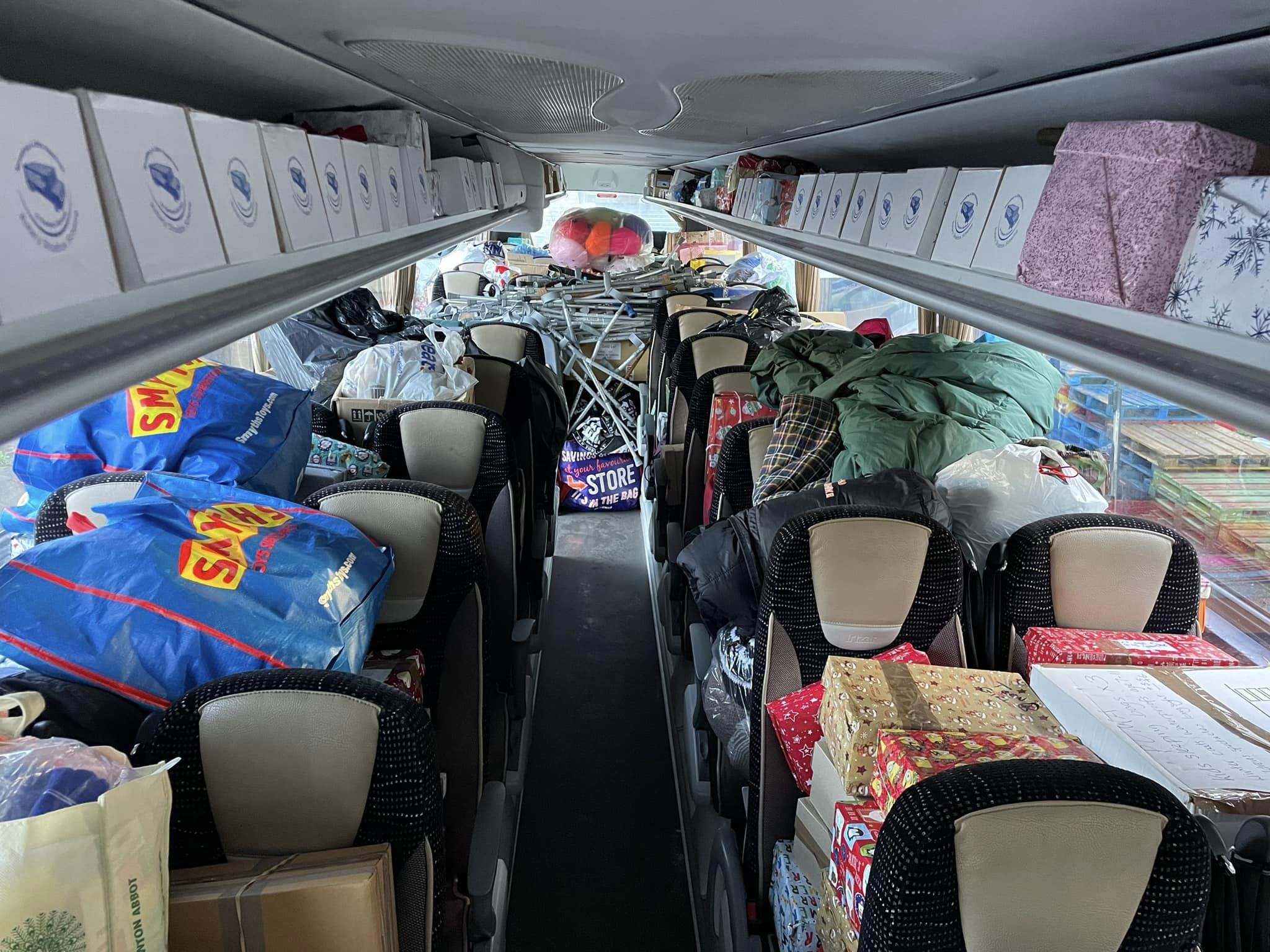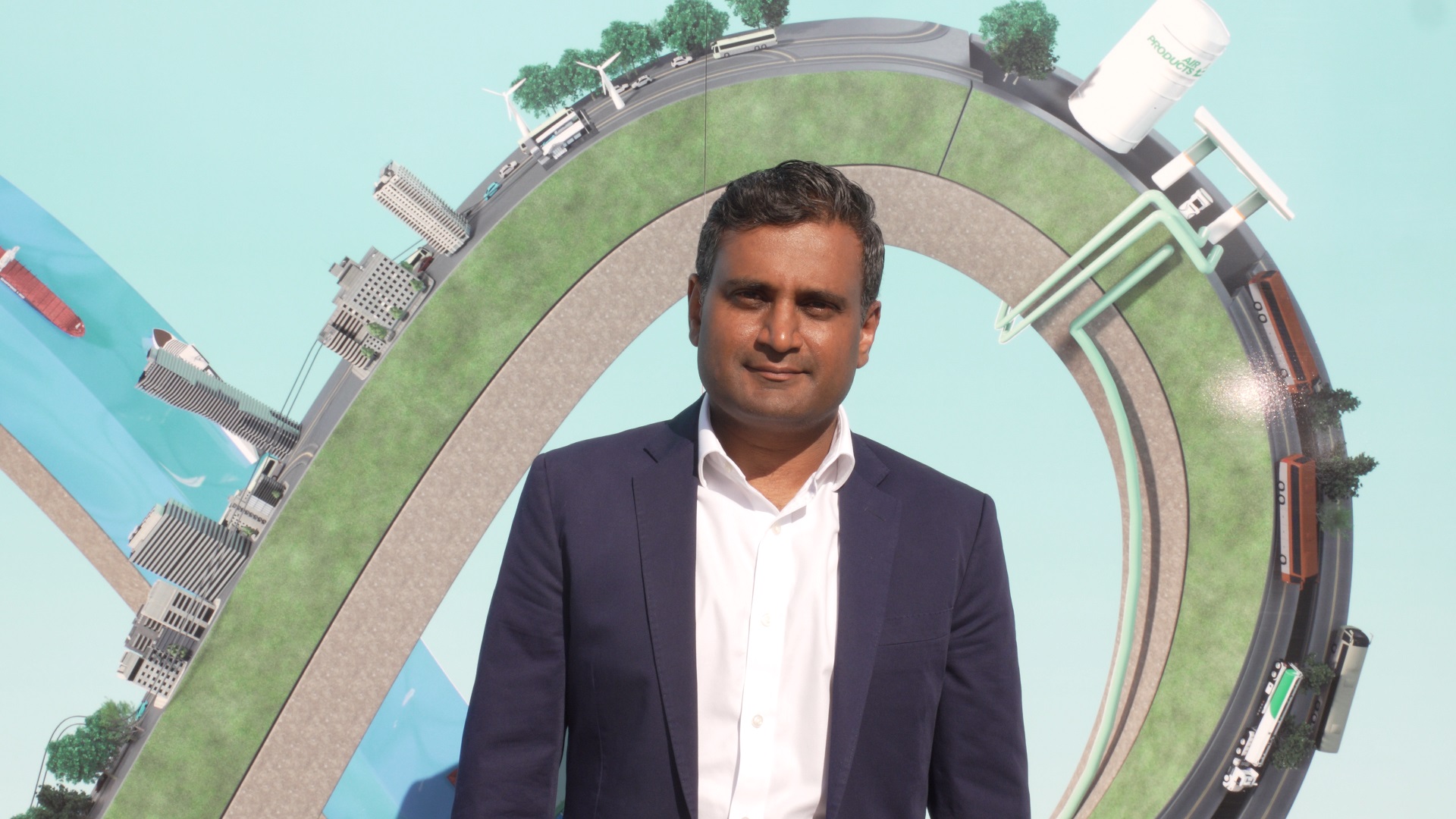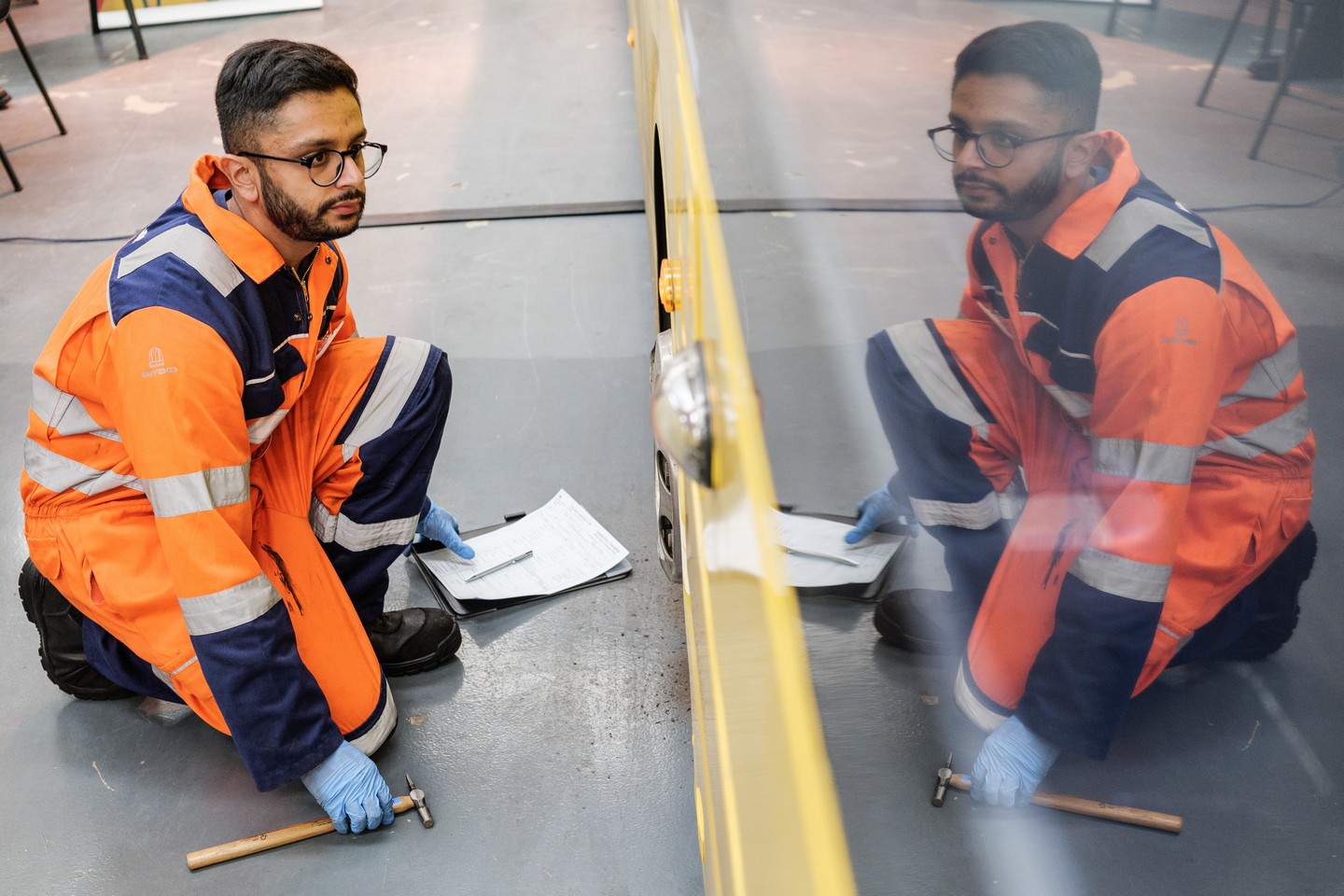For two Plymouth-based drivers, being asked if they would take a coach full of humanitarian supplies to Ukraine was just the start of the adventure.
“Do you have a car?” asked the receptionist of the hotel in Prague.
“No, we have a coach and we’ve parked it in one of your coach bays at the back,” replied the two very tired and weary coach drivers, keen to relax after a 500-mile journey from Hungary.
“We don’t have any coach bays,” came the response, a look of puzzlement stretching across the face of the receptionist. “Why would we? We only have nine rooms!”
For coach drivers Graham Chafer and Roy Mooney, the situation prompted an outbreak of laughter, adding to the confusion of the now bemused receptionist. After all, Graham and Roy had just completed a three-day overland journey from the UK to the Hungary/Ukraine border, and were now heading back to Calais. Considering what challenges the two men had recently overcome, a minor parking-related hiccup was nothing.
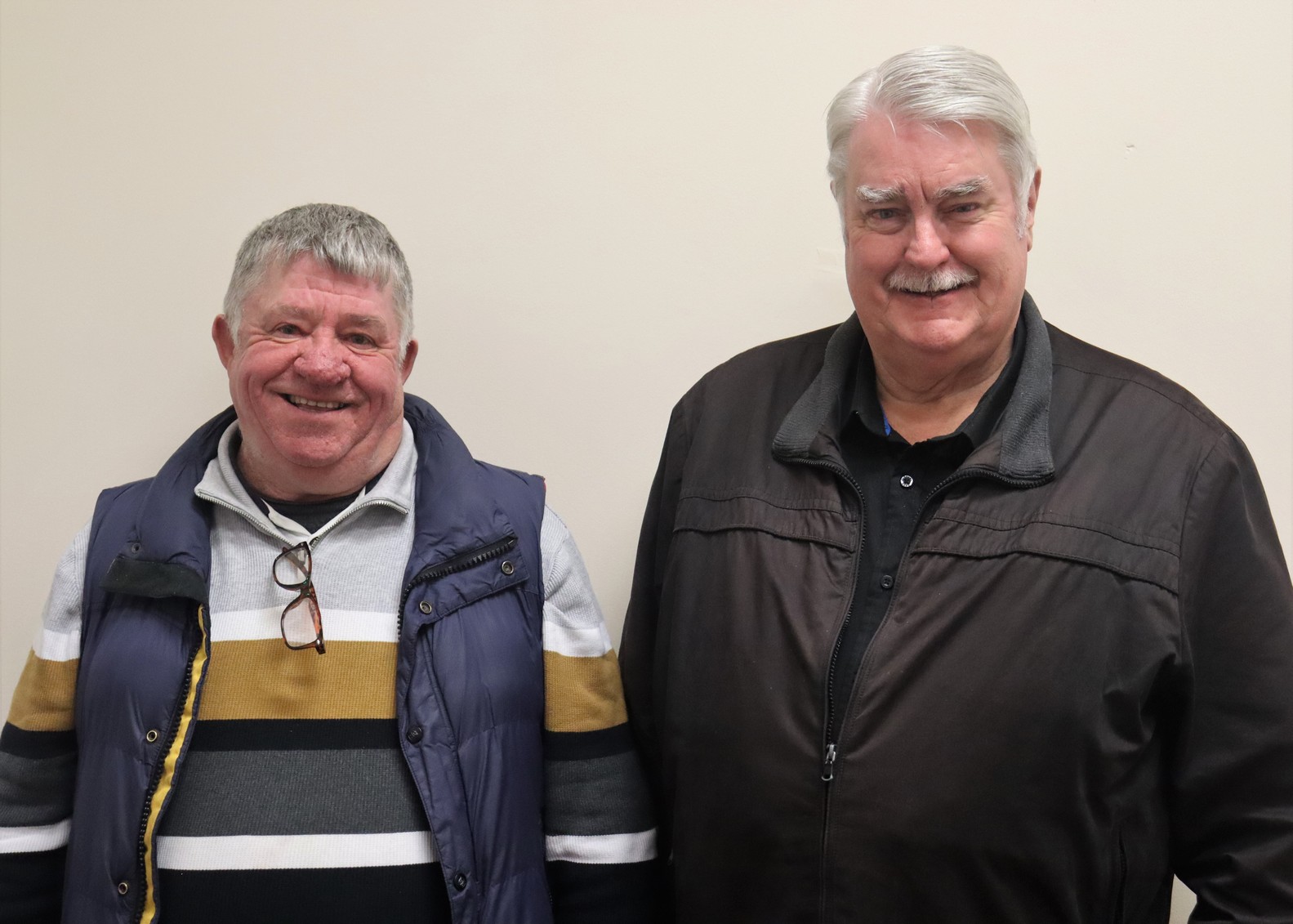
But let’s go back a few months. The story of this remarkable journey begins in Plymouth in March 2022.
Operator Go South West, part of Go-Ahead Group, had shown its support for the plight of Ukraine with the unveiling of a specially-liveried ‘peace bus’ that was helping raise money for those who had been affected by the war.
Commenting on the initiative at the time, Go South West Managing Director Richard Stevens said: “Like many people, we feel saddened and pretty helpless by the Ukraine war. We hope our peace bus is going to be a strong visual demonstration of our support wherever it travels across Plymouth and Cornwall on Go Cornwall Bus and Plymouth Citybus services. By doing this, we can encourage our colleagues, passengers and all people in our community to contribute.”
Richard Stevens makes a suggestion
Into the story comes a remarkable organisation, Plymouth Ukraine Medical Aid (PUMA) and it’s enthusiastic Chair, Ali Piper.
“We set up PUMA in April 2022,” she explains, “bringing together a small group of like-minded people from different backgrounds, professions and lifestyles, all wanting to improve the lives of those affected by the war in Ukraine. At the start I just thought I could run a medical aid trip using a van. But I soon realised there was more we could do. Not long after we’d completed four trips I found myself speaking with Richard Stevens at an event. He was telling me about the peace bus and was clearly keen to support us if he could. But then he said something that surprised and delighted me. He suggested that a coach might be a suitable vehicle for the next trip.”
Step forward our two coach drivers, Graham and Roy. Both are part-time drivers working for Go South West. Graham has been a regular continental coach tour driver for 20 years, initially with Plymouth-based Trathens. Roy joined Plymouth City Transport in 1974 as an engineering apprentice, working through the ranks, but doing the odd bit of coach driving when circumstances allowed.
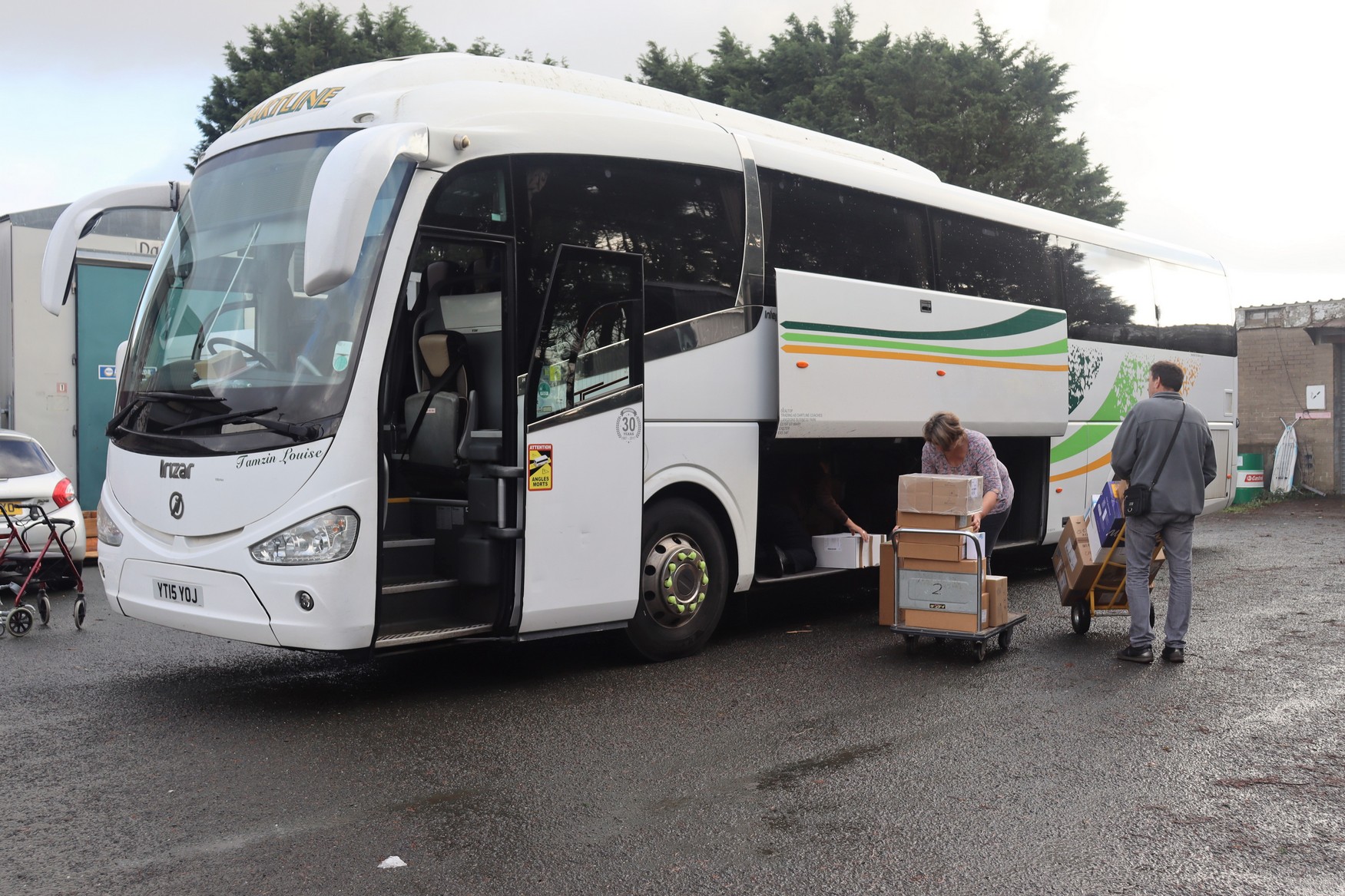
For the aid trip the chosen coach was a 15-plate Irizar i6 belonging to the fleet of Dartline, the Exeter-based company that had been acquired by Go South West just a few weeks before the trip to Ukraine.
“We were only asked if we would like to do the run a few days before,” says Graham. “We usually drive Panthers for Go South West so we had to quickly get used to the Irizar. All the paperwork was prepared in advance and we acquired some snow chains, just in case.”
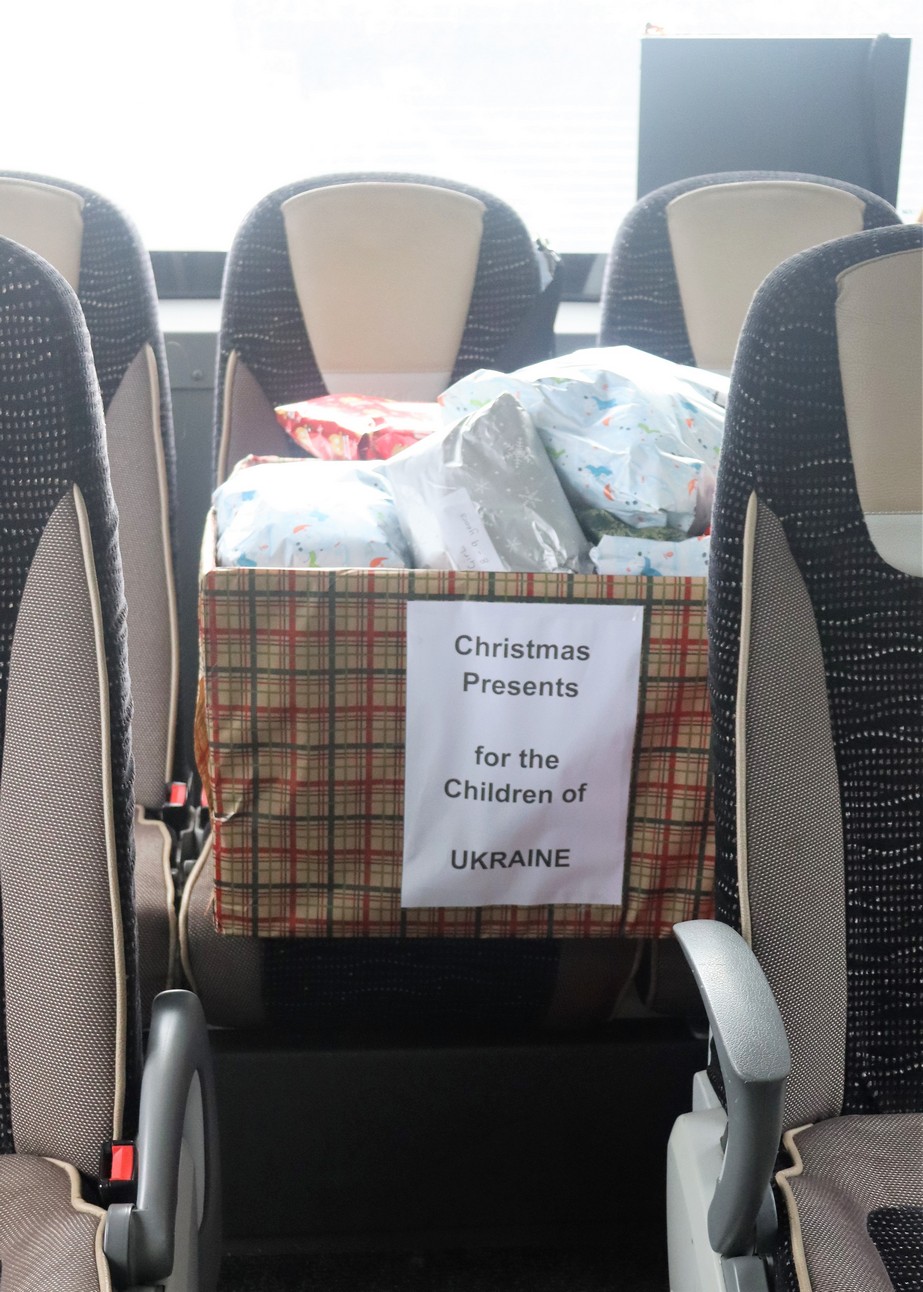
700 Christmas presents
Roy explains that the coach was packed to the gunwhales. “Apart from the seats at the front, and keeping the aisle free so we could use the toilet, every last space was taken up with supplies,” he says. “It took a full day to load it. We had everything from prosthetic limbs and specialist neo-natal equipment to tins of soup and cat food. We also had some 700 Christmas present boxes that the PUMA team would later give to children in Ukrainian orphanages and elsewhere. Ali told us that we’d managed to cram around three Ford Transits-worth of load onto the coach.”
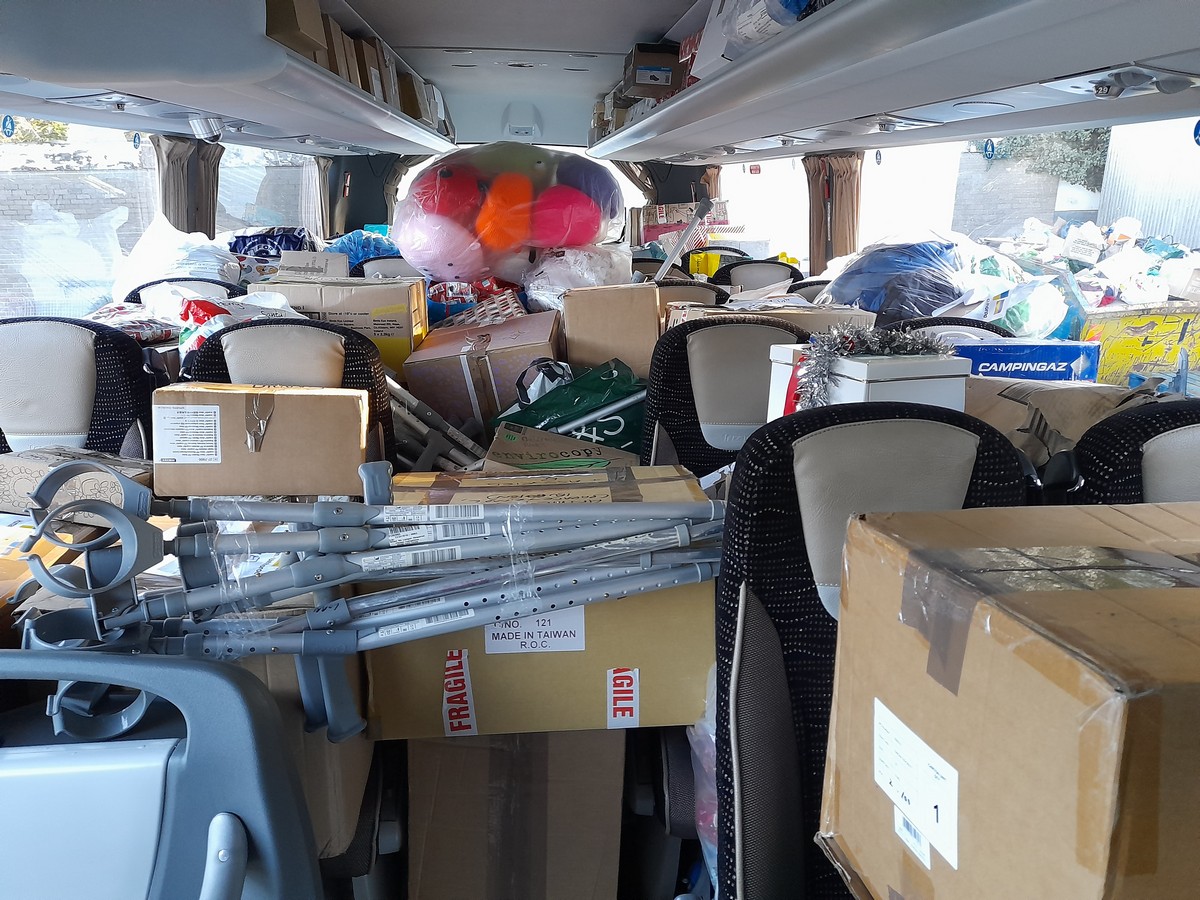
With the two drivers sharing the work, and complying fully with drivers’ hours regulations, good progress was made. Day one saw the coach travel from Plymouth up to Dover, and then head from Calais to an overnight stop in Aachen. Day two took the coach through to Prague. Day three completed the journey to Kisvarda, just 15 miles from Zahony, the Hungarian border with Ukraine.
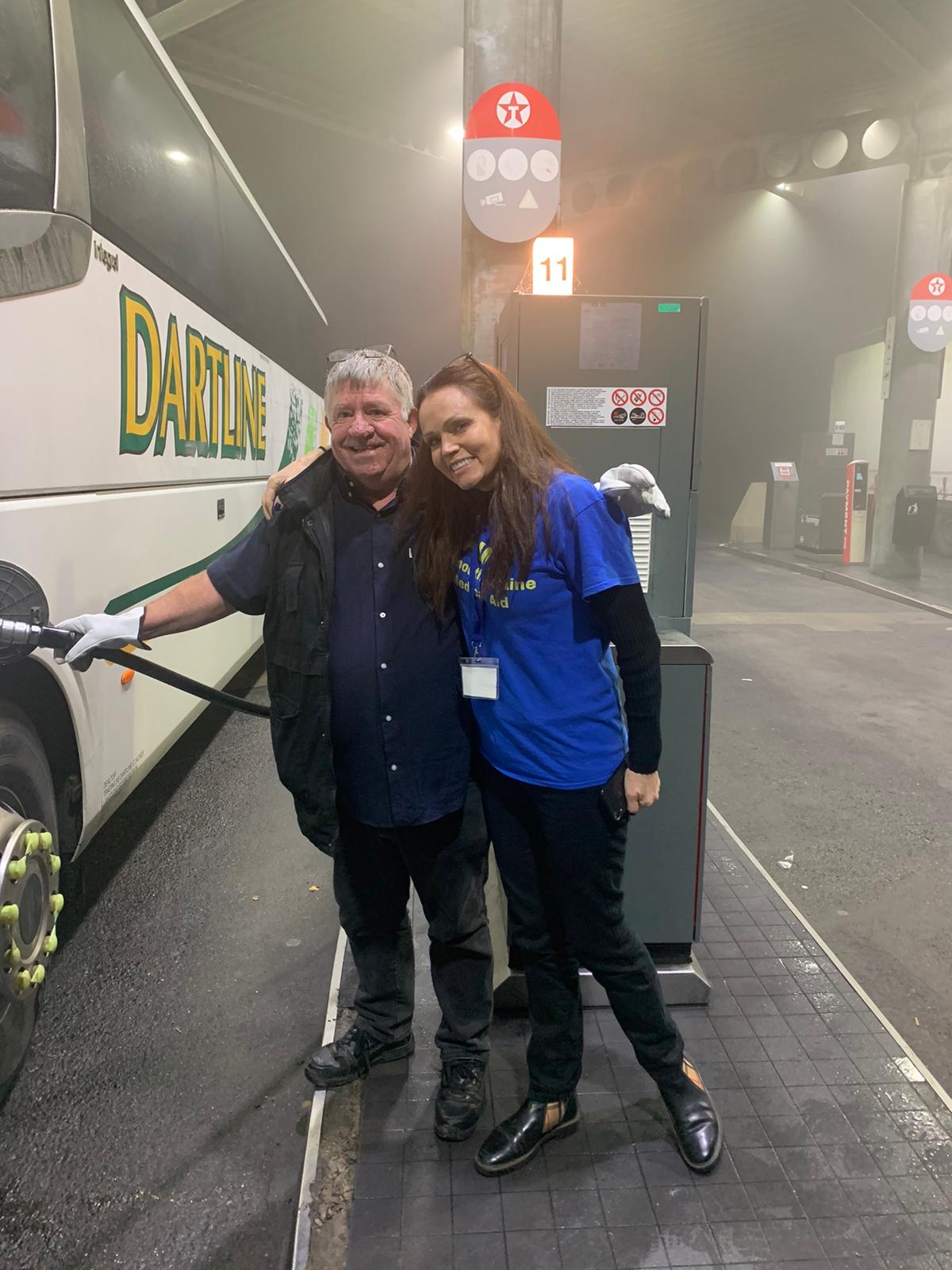
“At Dover we had to go through the freight lanes to get documentation showing we were carrying non-commercial freight,” says Graham. “At one point near the German border, Ali and the PUMA team, who were following us in their long wheelbase Transit van, were separated from us. In the event that proved to be a stroke of good luck because they got to the hotel before us, and realised there wasn’t room for the coach to park. A quick change of arrangements and we were guided to a coach-friendly hotel.”
In Prague, the PUMA supply chain saw much of the medical kit transferred from the coach to private cars for onward travel to the front line of the Ukraine war.
Roy recalls the arrival in the Czech capital.
“The greeting from those in Prague was overwhelming,” he says. “We were whisked off for a meal. We met some really nice people.”
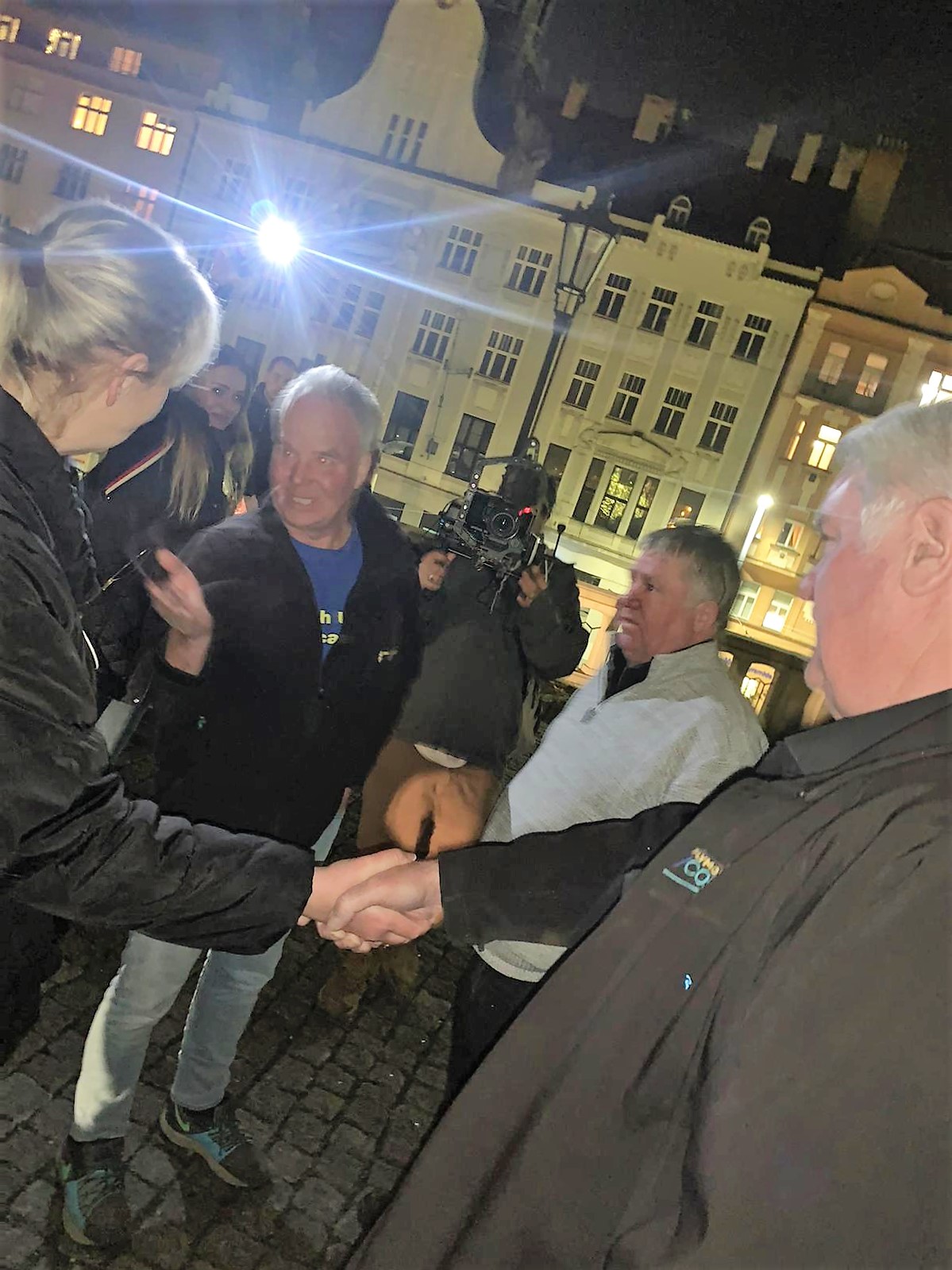
“Amazing and witty”
Ali explains some of the logistics that allows the aid journeys to take place.
“Since we started all this last year we’ve learnt a great deal,” she says. “We’ve now established our routes, not just the roads we take but how the aid will reach the people it needs to reach. Part of the learning experience was discovering that lorries travelling from Ukraine into Hungary can be held at the border for up to an astonishing 16 days. Even the vans we use can take 10 to 15 hours to get through. It’s one of the reasons why we won’t take the coach into Ukraine itself.”
Ali can’t praise Graham and Roy enough.
“When we first met them in Plymouth we were just new colleagues,” she says. “By the time we said goodbye in Hungary, and watched the coach head off back to the UK, we were really good friends. Graham and Roy are amazing, witty and really good fun.”
But now with an empty coach, Graham and Roy started their journey home.
“On the way back we stopped at the border between Slovakia and the Czech Republic,” explains Roy. “We pulled into the border control shed so that guards could inspect the coach for any stowaways. I hit the button to close the locker doors, but hit the passenger door button instead. Trapping a border guard on your coach isn’t necessarily a good idea. Fortunately he saw the funny side of it.”
So, what did Graham and Roy make of the trip?
“It was a humbling experience,” says Roy. “We didn’t really know what to expect, but I’m glad I’ve done it. We were fortunate to have such a great team with Ali and Jamie at PUMA.”
Graham reflects on what happened. “It was a 3,000 mile round trip,” he says. “I can’t actually get my head around what we’ve done. It was a completely un-normal coach trip!”
As for the future, another trip by coach is being planned, but this time only to Prague to meet up with the Ukrainian teams there.
And as for that Prague hotel on the return journey?
“We didn’t mind about the parking,” laughs Graham. “We just wanted to sleep!”
Can you help?
Ali from PUMA has told routeone that she would love to hear from any coach operator, anywhere in the country, who might be thinking they could do something similar. “Give me a call on 07747 444963 or email me at ali@brixtonhouse.eclipse.co.uk and let’s have a chat,” she says. “I’ll be happy to offer advice. Perhaps we could go in convoy!”













